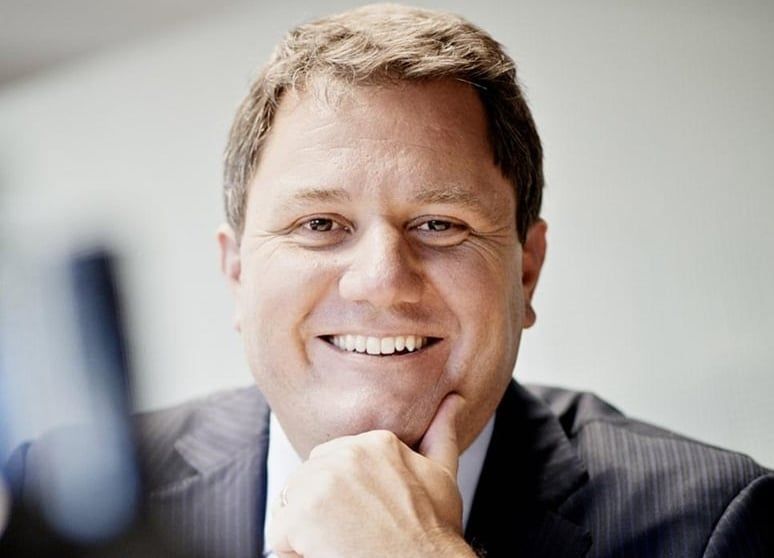For Paul Schaafsma taking on the role of chief executive at leading wine bottling business, Broadland Wineries, was the right job at the right time. Here’s why we will all be taking a lot more notice of what is happening at Broadland in the future.
Here’s a challenge for you. Write down all you know about Broadland Wineries and why it could potentially be a key future partner for on-trade wine buyers?
Chances are you will probably know it is a traditional bottling company, butyou may not know it has been consistently over the last 10 years been one of the fastest year-on-year growing wine businesses in the UK.
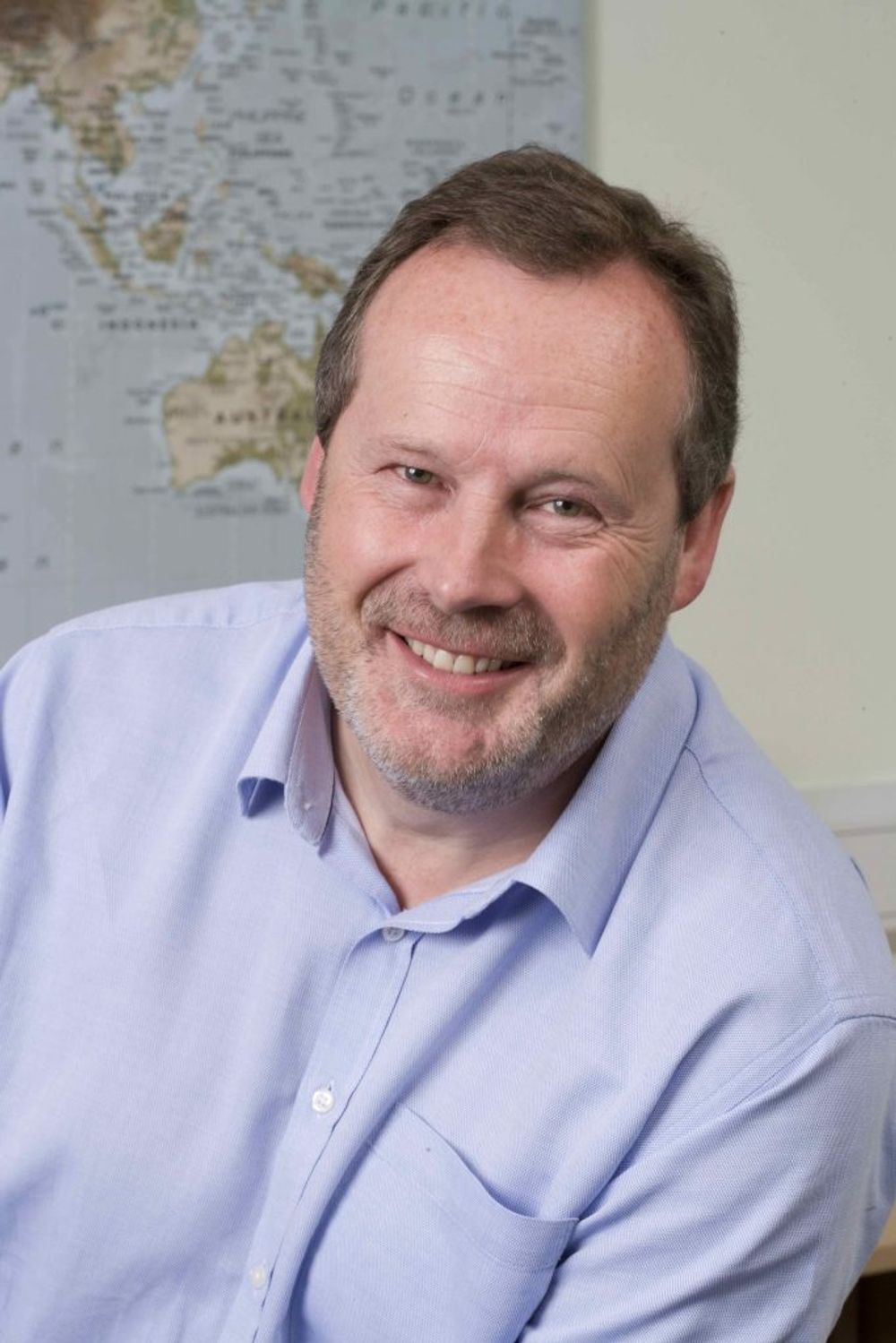
Broadland Wineries’ Mark Lansley has transformed the traditional bottling business
Under the leadership of Mark Lansley, Broadland Wineries has grown 20% year-on-year since 2006 to become a £60m plus turnover business.
Which, along with Kingsland Drinks, Encirc, and Lanchester Wines, part of the wider Lanchester Group which also owns Greencroft Bottling, has helped it emerge as one of the major partners, suppliers and bottlers of wine for major supermarket chains and national pub, hotel and bar chains.
Broadland Wineries is now capable of bottling across all packaging formats up to 50m litres of wine a year, with the capacity to go to 60m litres, from what its BRC Grade AA+ winery facility on the outskirts of Norwich.
Under the radar…up to know
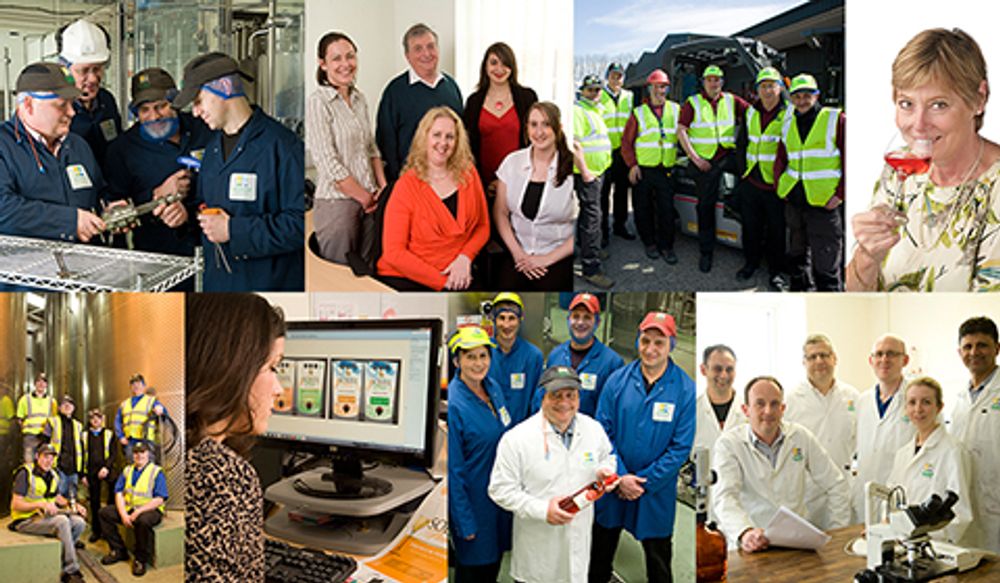
Broadland Wineries has kept its growth pretty much under the radar
But for all its growth Broadland Wineries has not courted publicity and remained very much under the radar, comfortable in its own skin, which up to know has been very much part of its business persona.
That is likely to change, though, with the appointment of Paul Schaafsma, the former head of Accolade Wines, as its new chief executive. It is certainly a statement of intent and ambition to bring someone with the profile and background of Schaafsma to head up its future strategy.
It might on the face of it appear to be a strange move for someone who has spent his career to date on the production and brand side of the industry. Someone who has built his reputation on building brands such as McGuigan, during his time with Australian Vintage, and then Hardy’s and a raft of other household wine brands whilst at Accolade Wines.
But scratch a little deeper and the new partnership makes a lot of sense.
Despite doing such an impressive job to get Broadland Wineries to the position it is in, Lansley has had the foresight to appreciate he does not have the natural skills to lead the business on what he sees as the next step in its growth. To potentially become a major supplier of branded wines from all over the world to every channel in not just the UK wine industry, but in other international markets too.
Schaafsma, for his part, was at somewhat of a crossroads in his own career and certainly looking to take on a new challenge. His departure from Accolade Wines in the summer of 2016 was arguably a bigger surprise that taking on the Broadland Wineries job.
The ins and outs of why chief executives leave major private equity-backed global businesses like Accoalde Wines are always going to be largely kept in the boardroom, and his departure came at the time when Accolade was looking to set up what was eventually a failed A$1bn IPO.
The “perfect fit”
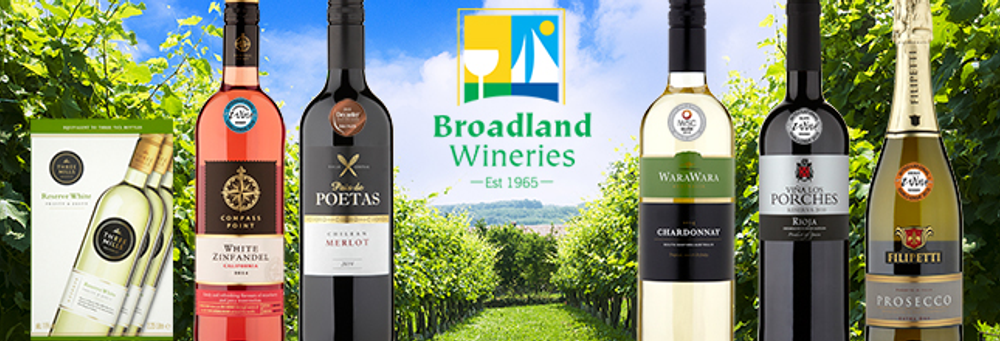
For him the opportunity to re-start his career by taking on the growth opportunities at Broadland Wineries was “just the perfect fit”.
It also reflects the huge changes that have taken place over the last 10 years amongst traditional bottlers in becoming leading brand developers and suppliers in their own right.
Capable of being able to continue to pack in any format from bottle, to pouch, to can. But also increasingly becoming brand developers in their own right, either creating their own exclusive bands to bring to market, or working with their partners to producer private label and bespoke brands for them.
Schaafsma is ideally placed to not only bring his experience of managing a global wine business, but particularly in building up both existing and new brands and finding the right solutions for different channels and consumer needs.
As he says himself the opportunity to join Broadland Wines came at just the right time. He was looking for an “opportunity to build and grow a business” and the potential at Broadland Wineries is there for all to see.
He explained how the move came together: “When I left Accolade Wines there was a period of time when I could not work in the wine industry. So I started a dialogue with Mark after that time. He has done a fantastic job over the last 10 years in creating one of the premier packing facilities in the UK.”
But, added Schaafsma, “got to a point where he recognised he needed to bring in someone who can ensure the business was relevant right across the trade, can grow the profile and bring in the right brands…you think about the fit and it just made sense.”
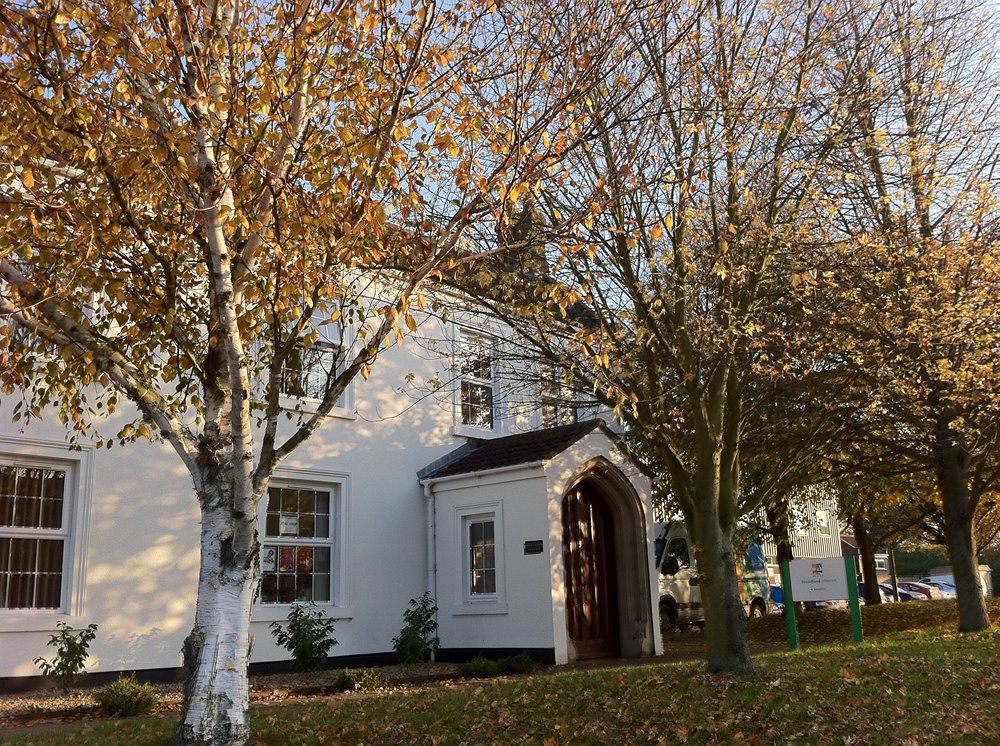
Broadland’s facility in rural Norfolk is one of the state of the art bottling plants in the country
Huge potential
Broadland Wineries is now sourcing, shipping, bottling and handling wine from around 15 countries around the world. Rather than just bottle wine it is now capable of offering a full service wine solution where it can help create a brand, based on its own consumer research and insights, and then go out and get the right quality juice from long standing producer partners around the world. It is also now sourcing, shipping, bottling and handling wine from around 15 countries around the world.
It is that scale and potential at Broadland Wineries that makes the chief executive role so appealing to Schaafsma.
“It blew me away. I had an expectation of what I was going to see, but I walked in and thought, wow, this is good as I have seen in the UK in terms of quality, machinery, culture.”
He added: “In terms of a one stop shop we can do private label, exclusive label, branded in every format.
It’s clear Schaafsma will look to bring in new skills and talent so that it can broaden its horizons even more. He explained it was all about “how we make what is already an exceptional team even better with the right sort of skills sets and resources for appealing to all customer segments”.
We can expect to see Broadland Wineries expand its business by developing more New World brands. Schaafsma pointed specifically to Australia, New Zealand, South Africa and Chile.
“We want to take on agency brands, strong brands from similar countries that hopefully find the packaging facilities appealing. Packing in the UK and getting the right cost of goods is so critical in terms of being relevant in this market. We are as competitive as anyone out there at the moment.”
It is a route that Broadland Wineries is already well on the road to taking having built stronger ties with the likes of South Africa, Chile, Argentina and New Zealand in recent years.
Market insights
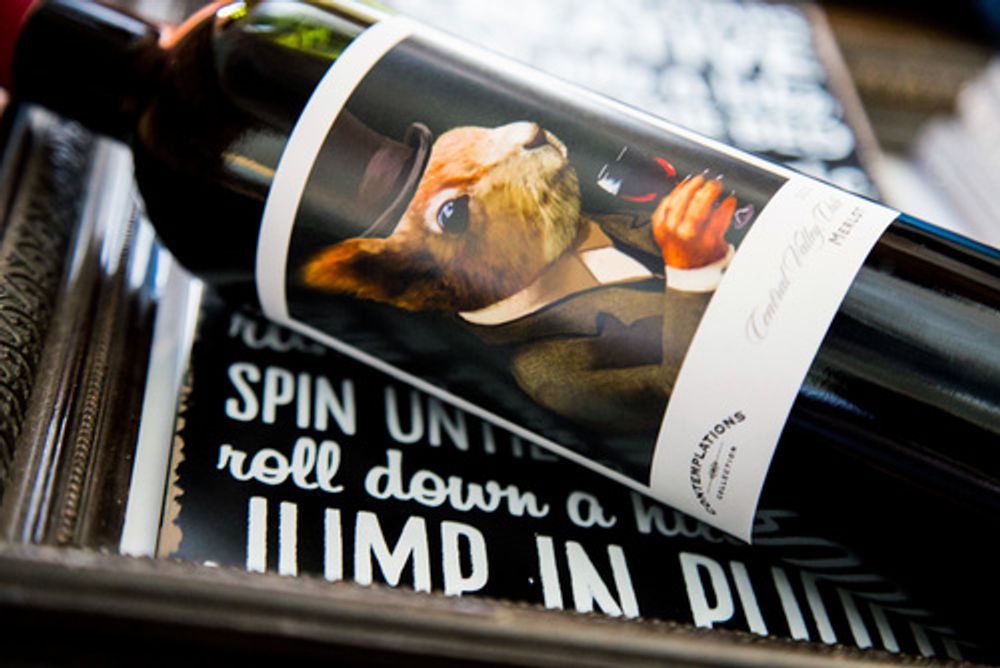
One of the new style of consumer targeted brands that Broadland has introduced for key customers
Broadland Wineries has already invested hugely in consumer trends analysis in recent years in order to keep itself ahead of what the market might be expecting.
As Lansley explained to The Buyer earlier this year: “You have to understand who your shopper is and be able to have a much more comprehensive conversation with them. Only then can you start to think about creating wine brands they might want to buy. By starting with the consumer and knowing how they shop and why, you have a lot more chance to maximise profits rather than base a new line on the fact you can access a few million litres of cheap Chilean Merlot.”
For Lansley it has always been about making the business as professional as possible, “bringing more science in to the wine trade” and “adding value at every stage of the process we are involved in”. “We’ve got to maximise the profitability for bottles on shelf,” he told The Buyer.
Channel strategy
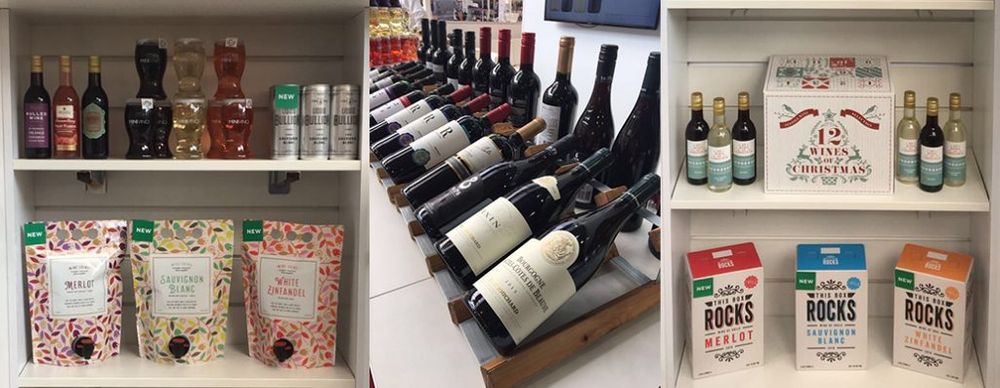
Broadland is able to pack across a full range of formats
It has also seen Broadland Wineries in recent years adopt a more channel specific strategy so that it has the right wines, brands for buyers across all operators to meet long term and short term needs. In particular, this has opened up the on-trade, national pub groups and regional wholesalers far more than in the past.
Where operators have been able to take advantage of Broadland’s wide range of packaging formats, carbonation lines, and ability to trial ranges as well as build bigger volume business.
It will be on the first key challenges for Schaafsma and his team to build on those different channel opportunities, particularly in the mainstream on-trade, and lock in relationships and opportunities where Broadland might be able to offer an alternative service to their nearest competitors.
Shaafsma is confident that “once the complementary skills sets are in place” it will be even more “relevant for all the supermarkets and larger national groups around the UK”.

Another example of recent Broadland branding activity
Overseas opportunities
Lansley has spoken in the past about expanding its bottling capabilities overseas, and picked out the US and Sweden, where it already runs its own sales and wine distribution teams as potential areas to go to.
Schaafsma, however, said it needs to be at the right time. “Mark has a desire to establish bottling facility in the US at some point. My comment to him is that once the sales justify it we can talk about a bottling line in America.”
It is, though, running its own sales teams in the US and Sweden and looking to develop a wider distribution network for its brands in more channels in both countries.
Speaking at this year’s London Wine Fair Lansley told The Buyer that by developing overseas businesses it was able to better understand the changing taste profiles of different consumers. For example in the US it was developing “smoothier, fruitier, more rounded wines” whilst in Sweden there was bigger demand for wines with “higher acidity”.
“There are synergies to be had, but we have to grow more to see how they develop,” said Lansley. “It’s a big investment to make and will probably take two years to break ground.”
International expansion was very much part of Lansley’s strategy to achieve the type of growth targets he had for the business. As he said to The Buyer in May: “It will help us spot trends that apply to other countries quicker.”
It will be interesting to see how far these now develop and whether a bigger branded business in the UK, which it appears Broadland Wineries wants to become, will allow it to achieve its ambitious growth figures.
Developing an international business also means it is not 100% reliant on a UK business model, where it is always buying in sterling, which might be the right strategy to have once Brexit is firmly in place.
But all that is to come. For now Schaafsma is pleased to be back in the game.
“It’s very early days and I’m really excited and positive about it,” he said.
- This is an adapted and extended article from one that first appeared on VINEX, the global bulk wine trading site.
